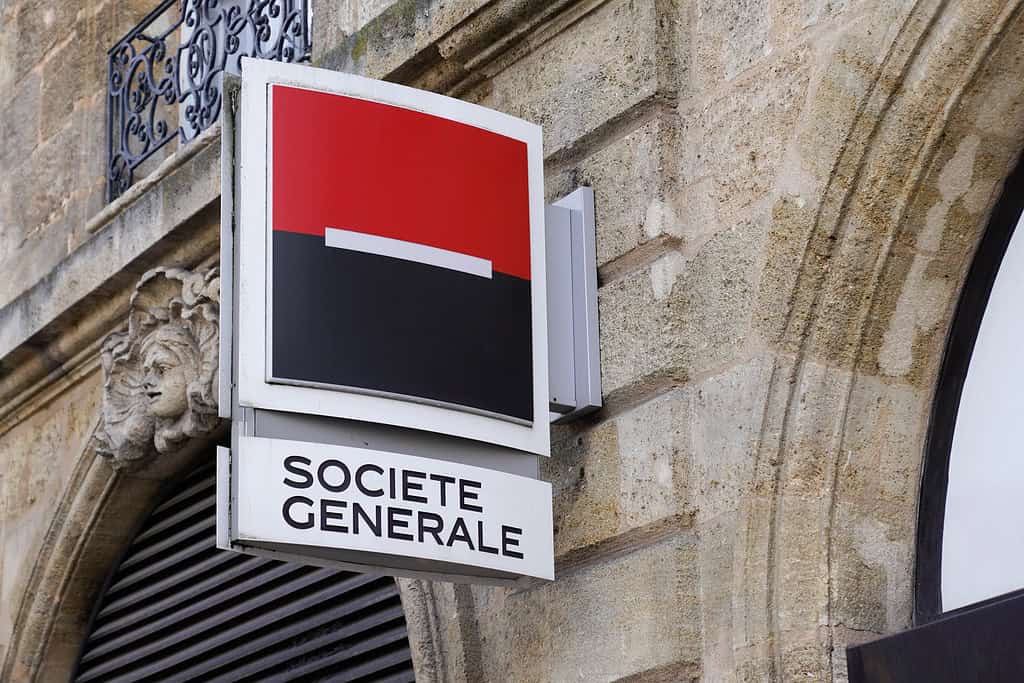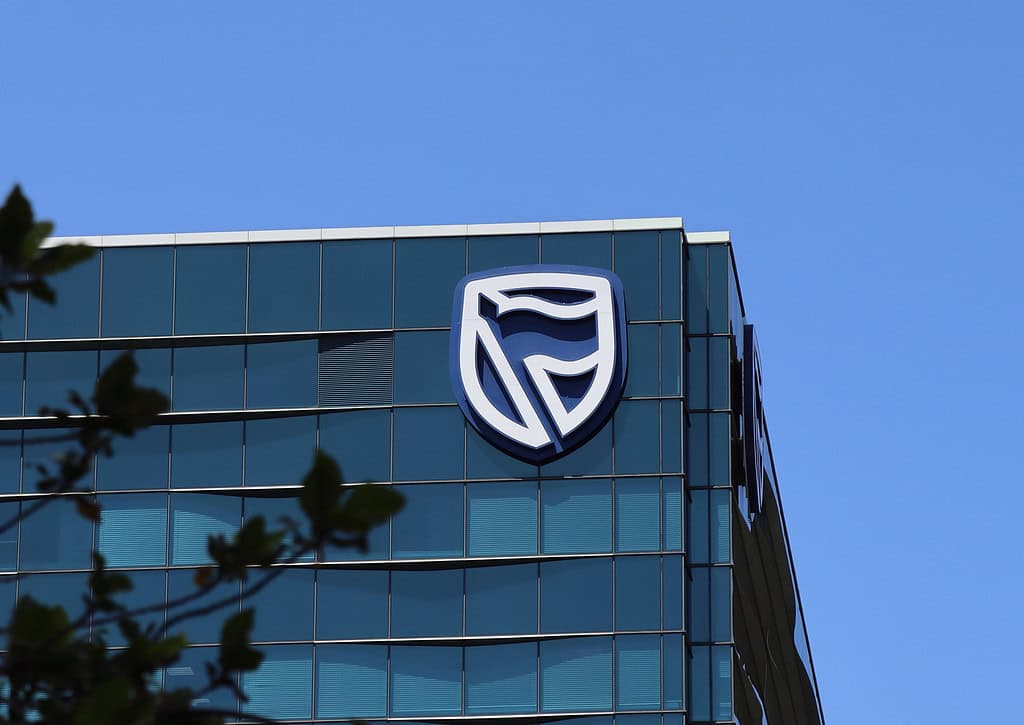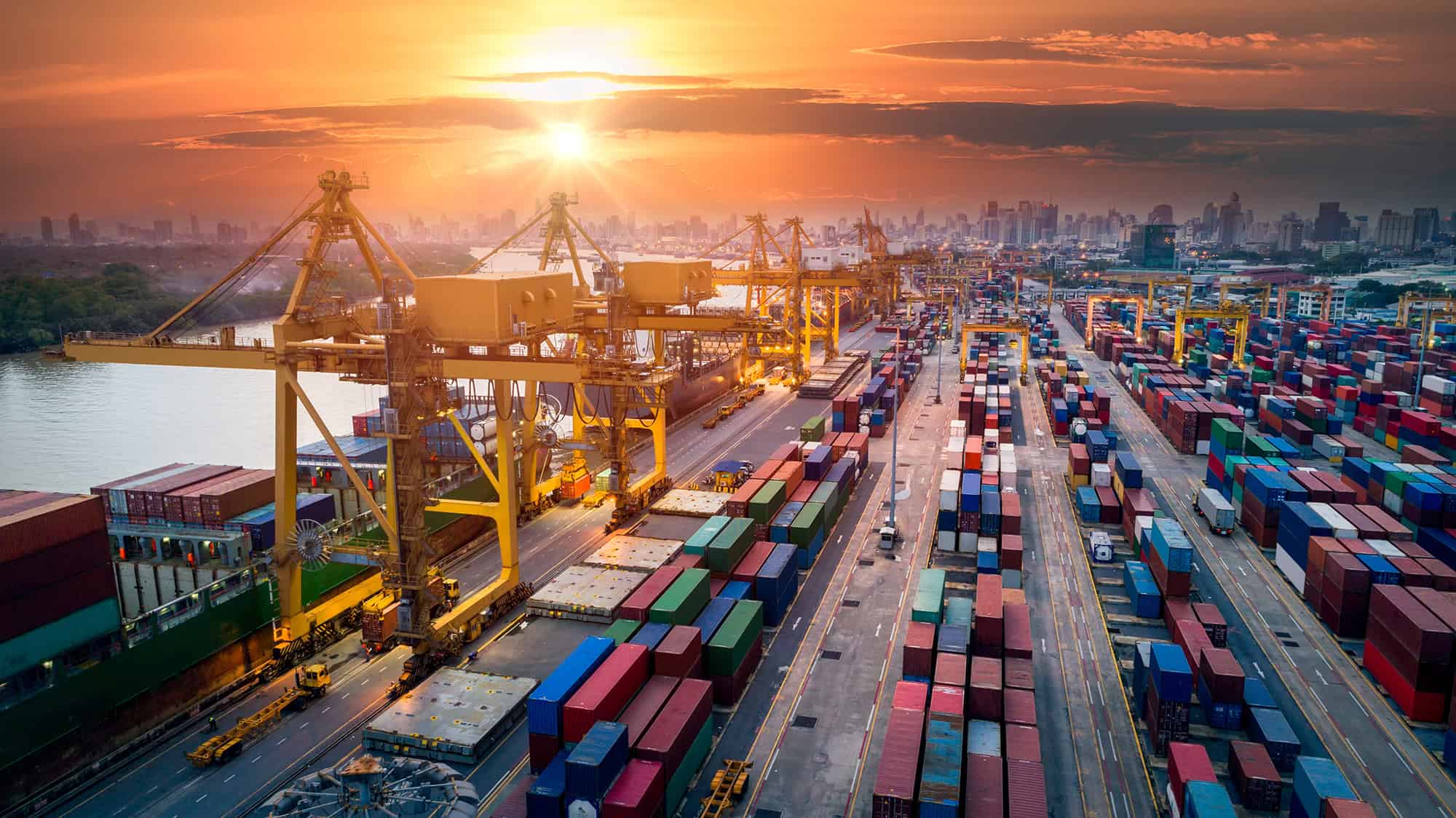Supply chain finance boosts resilience, liquidity, and ESG goals amid deglobalization and technological shifts.
As the world edges toward an age of deglobalization, supply chain finance (SCF) is increasingly seen as a powerful tool for enhancing supply chains’ resilience and flexibility.
The knock-on effects of supply chain uncertainties caused by geopolitical tensions and regional conflicts demand that businesses adopt flexible financing structures able to absorb shocks and mitigate risk.
By providing immediate cash flow, SCF helps suppliers avoid the pitfalls of traditional loans that can be challenging to secure during economic downturns. SCF also ensures that smaller suppliers remain committed and maintain steady production and delivery schedules. Additionally, SCF makes cash flow more predictable, aiding in better emergency planning. SCF is vital for businesses aiming to build reliable and resilient supply chains. It also boosts adaptability and maintains stability in challenging markets.
A reliable and resilient supply chain is essential for business continuity and success. SCF also helps buyers and sellers mitigate the impact of high interest rates—providing welcome relief from the rising cost of manufacturing goods.
According to a report published by market research and consulting firm IMARC Group, the global SCF market reached $7.5 billion in 2024 and is expected to reach $15.2 billion by 2033 as economic and geopolitical pressures reshape how businesses approach working capital and financing.
As deglobalization reorganizes established trade routes, more regional trade networks are created. In addition to reshoring and nearshoring, there has been a trend toward diversification, where companies source from multiple suppliers in different regions to minimize reliance on any single source.
This has led to an increase in deep-tier supply chain finance (DTSCF), often enhanced by blockchain and smart contracts. In DTSCF, large corporations extend financing beyond their immediate tier 1 suppliers to those suppliers’ suppliers (tiers 2, 3, and beyond). Implementing DTSCF can be more complex than traditional SCF due to the increased number of parties involved and the need to track payments across multiple tiers. It requires accurate data, robust technology, and thorough risk assessment, crucial to ensuring the creditworthiness of suppliers at all levels.
Financial institutions can better understand the risk profiles of small suppliers by leveraging alternative data and machine learning, thus expanding access to financing. Standard Chartered has partnered with Chinese fintech Linklogis to develop the SCeChain platform, which facilitates DTSCF. The platform is designed to connect businesses across the supply chain and provide financing options to suppliers at multiple tiers.
SCF can be a lifeline for small and midsize enterprises (SMEs) to address liquidity needs, which are more acute during volatile times. It enables SMEs to receive early payments on their receivables. This has also led many banks to participate in third-party platforms focused on micro, small, and midsize enterprise (MSME) finance. DBS Bank India, for example, launched a preshipment-financing offering on India’s Trade Receivables e-Discounting System to help with end-to-end MSME supplier financing. This offering enables secure funding against purchase orders from buyers and streamlines cash flows.
SCF is also a powerful tool that encourages suppliers to improve their environmental, social, and governance (ESG) performance throughout the chain—rewarding suppliers who demonstrate strong ESG performance with preferential pricing, early payment discounts, and access to exclusive programs. This is a win-win for all, including the long-term sustainability and resilience of the supply chain itself.
Santander’s 50 million Brazilian real ($8.3 million) sustainability-linked SCF (SLSCF) program for Danish wind turbine manufacturer Vestas’ global supply chain is a notable example of how collaboration and technology can encourage ESG throughout the supply chain. “Santander plays a pivotal role by leveraging advanced technology to drive efficiency and transparency,” explains Enrique Rico, global head of Trade and Working Capital Solutions at Santander. “Through a market-leading supply chain finance platform, collaborations with third parties, and technical support for suppliers, among other technological integrations and collaborative efforts, Santander ensures that Vestas’ SLSCF program operates efficiently, transparently, and sustainably, setting a benchmark for combining financial incentives with ESG objectives.”
Companies must be strategic, adaptable, and open to embracing technological innovations in this evolving supply chain environment. From electronic trade documents that enhance the speed at which SCF systems can unlock liquidity, to using artificial intelligence to streamline processes and facilitate the electronic onboarding of suppliers, these innovations help make SCF more accessible to all.
Technology can improve supply chain visibility and responsiveness, crucial as businesses build resilient supply chains to ensure business continuity and mitigate the risks associated with a more localized or regionalized production model.
| Supply Chain Finance Provider awards 2025 | |
|---|---|
| Global Winners | |
| Best Supply Chain Finance Provider – Bank | Societe Generale |
| Best Supply Chain Finance Provider – Non-Bank | PrimeRevenue |
| Best Customer Implementation | Santander |
| Best Dynamic Discounting Solution | MUFG |
| Best Reverse Factoring System – New For 2025 | Orbian |
| Best Sustainable Supply Chain Finance Program – New For 2025 | Santander |
| Regional Winners | |
| Africa | Standard Bank |
| Asia-Pacific | ANZ |
| Caribbean | Banreservas |
| Central & Eastern Europe | TBC Bank |
| Latin America | BBVA |
| Middle East | Emirates NBD |
| North America | MUFG |
| Western Europe | Societe Generale |
Global Winners
Best Supply Chain Finance Provider—Bank
Societe Generale

The French banking giant Societe Generale offers a new workflow that includes external data and better analyzes clients’ working capital needs. The offering also consists of a peer comparison of key receivables and payables financing elements. Societe Generale offers an environmental, social, and governance (ESG) version of the bank’s full range of solutions, including green or social-focused products such as factoring, forfaiting, and sustainability-linked supply chain financing (SCF). Societe Generale also offers a dedicated and simplified solution to retail clients or small and midsize enterprises (SMEs) based on their ESG rating. Finally, establishing connectivity to CRX Markets improves support for Societe Generale’s largest clients to help grow the bank’s SCF programs.
Best Supply Chain Finance Provider—Non-Bank
PrimeRevenue
PrimeRevenue processes over $300 billion in payment transactions annually, operating in 102 countries and serving more than 50,000 companies worldwide. Backed by over 105 funding partners and with over 57,000 suppliers enrolled, PrimeRevenue’s platform offers comprehensive payment offerings that help businesses across the supply chain optimize working capital, efficiently fund strategic initiatives, gain a competitive edge, and strengthen relationships throughout the supply chain. Suppliers can instantly track invoice payments and upcoming payment totals for improved forecasting. PrimeRevenue also offers end-to-end payment automation, from invoice uploads and remittance-advice reports to trading of specific invoices for early payment, and instant visibility into payment status.
Best Customer Implementation
Santander
Santander enjoyed a bumper year of customer implementations in 2024, including a landmark mandate for up to €1 billion (just over $1 billion) for an SCF facility with a large European technology, media, and telecom company. A multinational agricultural company mandated Santander to deploy a global SCF program in several regions. The program, which spans 10 countries, represents a total facility of $2 billion and currently channels over $17 billion in multicurrency payments across various buying entities, encompassing more than 500 suppliers worldwide.
Best Dynamic Discounting Solution
MUFG
Unlike other banks that outsource dynamic discounting to a fintech, MUFG owns and operates a processing platform for buyer-led SCF, seller-led receivables finance, and dynamic discounting. Dynamic discounting solutions can help buyers earn a high-yield return on their excess cash. MUFG says that clients who implement a dynamic discounting offering enjoy a typical average annualized yield of between 10% and 12% APR, significantly outperforming most internal investment hurdle rates or returns on short-term cash.
Best Reverse Factoring System
Orbian
In 2024, Orbian launched its Payment with Terms, a balance sheet improvement solution. Under Payment with Terms, Orbian pays suppliers on the due date and offers the buyer a payment term (for example, 60 days) for payment to Orbian. Such payment protects buyers’ liquidity and improves their working capital without involving the supplier. In a three-way reverse-factoring arrangement between the buyer, supplier, and a financial institution, use cases include the fastest working capital improvement for buyers, without involving suppliers; improved working capital without changes to the procurement contract; and reduction of the cost of goods sold by taking advantage of available supplies at a discount while maintaining liquidity.
Best Sustainable Supply Chain Finance Program
Santander
In August 2024, Danish wind turbine manufacturer Vestas mandated Santander Brazil to deploy a 50 million Brazilian real ($8.3 million) sustainability-linked SCF (SLSCF) program, the first of its kind for Vestas globally. “This program is a groundbreaking approach to integrating financial mechanisms with sustainability goals,” states Enrique Rico, global head of Trade and Working Capital Solutions at Santander. “By combining financial incentives with a structured pathway to improve ESG performance, Vestas’ SLSCF program supports suppliers in adopting sustainable practices and aligns with its broader corporate sustainability goals. It includes integrating ESG ratings, linking financial incentives, and implementing a tiered discount structure for financing rates. It also recognizes the unique challenges SMEs face and encourages ongoing improvement based on annual analysis.”
Regional Winners
Africa
Standard Bank
Standard Bank has SCF platform collaborations with Addendum Financial Technologies, Taulia, and most recently, DP World. Standard Bank has funded SCF transactions of more than 20 billion South African rands (about $1.1 billion), supporting small to midsize suppliers while promoting gender equality, financial inclusion, and diversity. Standard Bank has developed and rolled out ESG SCF capabilities in the South African market, including an ESG performance-based approach and a sustainable social and environmental SCF (use of proceeds) approach to align with clients’ sustainability goals. This allowed Standard Bank to execute the first sustainable SCF facility and green guarantee in South Africa, for China National Building Material and Raubex Group, with total funding of 650 million rands and a guarantee facility of 500 million rands, respectively.

Asia-Pacific
ANZ
Supply chain solutions, including receivables and payables-specific products are enhanced by emerging technologies to help reduce costs and make supply chains more sustainable and resilient. ANZ Trade and Supply Chain Operations has a geographical presence across Australia, New Zealand, Asia, Europe, the Americas, and the Pacific and has a presence in 42 locations across 27 countries. Notable SCF achievements in 2024 include a repayment facility granted to the Singapore trading arm of a global commodity trader, a digital receivable finance program for a leading technology company, and a partnership with a leading technology company to deliver the first sustainability-linked payables facility backed by ANZ in China.
Caribbean
Banreservas
Banreservas grew its factoring portfolio by 63.5% in 2024 over the previous year. The bank also launched “Factoring Gubernamental Reservas,” a government factoring initiative in which customers can accelerate the payment of their invoices to provide liquidity to the SMEs supplying state-owned companies.
Central And Eastern Europe
TBC Banka
While its market share is 74% in Georgia, TBC Bank financed a substantial nationwide project from 2023 to 2024 to install and modernize natural gas infrastructure. During this effort, contractors faced cash flow deficits and waited up to a year to be paid for completed work. TBC Bank analyzed the project and offered factoring as a solution, taking the risk off the debtor. TBC Bank also launched a web-based, end-to-end SCF and factoring platform.
Latin America
BBVA
BBVA has been providing local SCF solutions in Latin America, including Mexico, Peru, Colombia, and Argentina, since starting in Mexico more than 15 years ago. The bank offers its major SCF programs in Mexico, Peru, and Colombia. In October 2020, BBVA presented its brand-new global SCF platform. The cloud-based platform provides the most competitive funding, a standardized contract approach, a supplier-onboarding tool, and a centralized view of all the companies’ programs and suppliers in all locations and currencies simultaneously.
Middle East
Emirates NBD
Clients have taken up the digital-onboarding proposition for last-mile suppliers offered by Emirates NBD. The platform, smartSCF, lets suppliers manage their accounts receivable workflows; and the buyer’s accounts payable function manages payables by automatically matching credit notes against invoices. The platform also provides multichannel access, including Swift and host-to-host. A sustainable supply chain program allows clients to influence suppliers to adopt sustainable processes. Emirates NBD has developed the platform to digitalize and streamline receivable finance and SCF product offerings and is the first bank in the region to offer dynamic discounting.
North America
MUFG
MUFG, one of the largest SCF providers in the US, has a 15.1% wallet share among large corporations. Last year, the bank distributed more than $25 billion in SCF assets across multiple investor banks and financial institutions. The bank has five regional operating centers in the US and services more than 500 buyers and sellers and 41,000 suppliers in 42 countries.
Western Europe
Societe Generale
Societe Generale is the leading SCF provider in the Belgium, Netherlands, and Luxembourg region in terms of the number and volume of existing programs. The bank continues to expand its footprint in the UK, Germany, France, Italy, Spain, Switzerland, the Nordic countries, the US, and the Asia-Pacific region.




